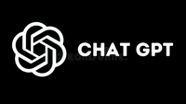|
|
|
|
|
|
|
|
|
Dear reader,
Welcome to The Director's Dilemma November 2023
Each month this newsletter looks at a real-life board scenario and considers a range of responses. The scenarios are de-identified to protect the individuals concerned. This month we advise a not-for-profit company board that has inadvertently breached the disclosure rules.
Of course, scenarios in the newsletter are general, I work with boards and directors as a confidential mentor to help them beat challenges and seize opportunities. If that sounds like something you would like, please call me.
To read this email in a web browser, go to www.mclellan.com.au/newsletter.html and click on 'read the latest issue'. I hope you will enjoy the latest dilemma:

Harry was asked to join the board of a small not-for-profit organisation. The company was founded about ten years ago as a private company with a sole director. It became a company limited by guarantee two years ago and a board was formed. The board is very operational, and all directors are volunteers who work on the company operations. No staff are employed.
Harry loved the company's mission (helping the disabled to enjoy holidays with family) and was keen to join however the governance seemed a bit informal and he made it a condition of joining that the company would engage a company secretary to minute meetings and help ensure compliance. A professional outsourced company secretary was contracted, and Harry joined the board.
The company secretary started to look through past minutes and make a decisions register. It became apparent that the company had not held an AGM within the two years of its existence. Legally, the company should have held an AGM within 18 months of its incorporation as a company limited by guarantee.
The company secretary has told Harry that this is serious and must be reported to the relevant authorities.
Harry agrees but is worried about incurring fines and perhaps also personal liabilities.
What should Harry do?
|
|
|
|
Sharon's Answer

Harry's first concern should not be about fines and liabilities but about ensuring the NFP is meeting its reporting and compliance requirements in a timely manner.
Harry needs to raise this matter urgently with the Chair and clarify if the organisation is a registered charity with the Australian Charities and Not for Profit Commission (ACNC) and what the organisation's Constitution states are the requirements in relation to holding an AGM. He should also ask the Chair if the Board has been appraised of this matter.
If the organisation is registered with ACNC then Harry needs to ask the Chair to provide him with evidence on steps taken to meet the requirements of ACNC Governance Standard (1) as well as how the rules in the Constitution have been met.
Harry should immediately assess the evidence from the Chair on ACNC and Constitutional compliance. Harry needs to determine if he considers these have been genuine attempts to engage with and listen to members. If Harry considers the actions to date are not sufficient in his view, then he should request the Chair advise how this will be addressed asap.
Harry should seek an update from the Chair and Company Secretary on what has been done to appraise the ACNC of the situation and on how the requirements of the Constitution will be met.
Finally, if Harry is not satisfied with the advice of the Chair and actions taken he should consider his future in relation to the Board given the seeming disregard for appropriate member governance.
Sharon Winks has been the Chair and member of various NFP Boards at a local and National level over 8 years and is a Graduate of the Institute of Company Directors. Sharon is currently a director of Marymead CatholicCare Canberra Goulbourn and an executive consultant with Galant Management Consulting. She is based in Canberra, ACT, Australia.
(1) You can read about the requirements at https://www.acnc.gov.au/for-charities/manage-your-charity/other-regulators/companies-limited-guarantee
|
|
|
|
Julie's Answer

Harry has joined a board without enough due diligence into the culture and compliance. He has – fortunately – little to fear as he was not involved in the breach of duty and was instrumental in ensuring a diligent company secretary was appointed.
Why is the company secretary asking Harry rather than the Chair? That is a more appropriate reporting line. Does the Chair still treat the company as a private business with only one shareholder? Does the Chair support and respect the company secretary? Harry needs to understand the interpersonal dynamics of the situation. What is the culture around informing stakeholders and what are the current practices? Harry needs to make sure rhetoric is backed by action.
It is imperative that the board be informed immediately of the failure to meet their requirement to hold an AGM. If the company secretary is loathe to do this, Harry must step up. The company secretary has a duty to inform the appropriate regulator of the breach and the board should be aware before that happens.
AGMs are not difficult or threatening, although they can appear so to directors who have not experienced one. There is a schedule of actions that need completion before the AGM. Harry should ask the company secretary to draft a plan of action that the board can endorse and implement to hold an AGM as soon as possible. If the board shows that they are working to remedy the breach, and that nobody has been harmed by it, it is possible that the regulator will let them off with a warning and a requirement to hold an AGM as soon as they can.
The board should then make an annual calendar to ensure they meet their compliance and strategic duties in future..
Julie Garland McLellan is an experienced non-executive director and board advisor based in Sydney, Australia.
|
|
|
|
Jana's Answer

I will answer as if the situation occurred in the Czech Republic:
-
Harry should be aware that he is facing a quite common problem of NGOs; boards working on the basis of volunteering often struggle with legal compliance in a changing environment
-
Harry should also know that he cannot be held responsible for mistakes or compliance issues which occurred before he engaged with the duty
-
however, once he is in duty, he must tackle the problem and should not run away from it
Harry should:
-
Inform the other board members about the issue and his decision to clean it up, ensure the "quorum" or minimal necessary presence of Board members and other stakeholders for an AGM
-
Ask the company secretary for an action plan to organize the AGM asap and then register it to the authorities
-
He may ask the advice of an independent lawyer to evaluate the risk described by the company secretary and shall inform the Board about a potential fine, which is, however, beyond his focus area
From the point of view of a Czech NGO this risk described is relatively low as long as there are not major actions which have taken place which were subject to the decision of the AGM that has not taken place.
Jana Martinova is a long-term board member of the French-Czech chamber of commerce and has represented the ECE region on the AltoPartners global board. She is Managing Partner of Accord Group Ceska / AltoPartners Czech and Slovak Republic. Jana is based in Prague, Czech Republic.
|
|
|
|
Chat GPT's Answer

Harry, you're right to be concerned about the lack of compliance with AGM requirements, but you can take steps to address this situation while minimizing potential risks.
First, consult with the company secretary to fully understand the implications of not holding the AGM and any other compliance issues.
Seek legal counsel, preferably from a corporate law expert, to guide you on how to handle this and protect yourself and the organization.
Report the AGM non-compliance to the relevant authorities promptly and work with the board and the company secretary to schedule and hold the overdue AGM, ensuring proper procedures and documentation.
Keep thorough records of all actions taken to address the issue, which may be valuable if legal inquiries or audits occur.
Check if the organization has directors and officers (D&O) liability insurance. If not, consider it for the future to protect board members from personal liability in similar situations.
Use this experience to enhance the organization's governance and compliance procedures. Ensure all legal obligations are met promptly. Provide training for all board members on their legal responsibilities and the organization's specific governance requirements.
Maintain transparency and open communication with the board and stakeholders about the situation and the steps being taken to address it.
Remember your commitment to the organization's mission: helping disabled individuals enjoy holidays with their families. Use this dedication to drive positive change and strengthen governance practices.
Prioritize legal compliance while protecting yourself and the organization's reputation.
Chat GPT is getting more human every day and it (still) resides in Cyberspace.
|
|
|
|
Where is Julie? Where is Julie? I am in Sydney, Australia, and greatly enjoying the spring weather. Over the past month I have had the joy of visiting Melbourne, St Arnaud, Armidale, and Tamworth. I have also been teaching online in Melbourne, New Zealand, and Mumbai, India.
In two weeks, I shall be visiting Brisbane (and I would dearly love to meet you or some of your executive team members whilst I am there delivering the Writing Better Board Papers Course).
If you would like me to run a course in your hometown, give me a call and let's get it scheduled.

Get better Board Papers - Your board's decisions are likely only as good as the papers it receives. If you are less than 100% happy with the papers that your board receives then I have just what you need: A recently updated one-day training course on Writing Better Board Papers.
New content now includes best practice on preparing papers for use with board portals, writing compelling recommendations, and the process for handling questions prior to the board meeting. If you want to recommend it to your executive team (or to come along yourself), I shall be hosting a public course in Brisbane on 15 November. Book at: https://tinyurl.com/Course1511
If you would prefer an in-house course for your executive team, please call or email me, or ask your training department to contact me at julie@mclellan.com.au to find a date that suits.
Video resources - I post short video insights on LinkedIn. They disappear after a few days. You might like to visit (and please subscribe to) my YouTube channel to see the videos whenever you want to watch them. Let me know if there are any topics you would like to see addressed and I will see if I can add a video to the channel for you.
Board review - Every board - just like every other team - needs to measure its performance if it hopes to improve. When your board next needs to conduct a performance evaluation or a governance review, please remember that I would be delighted to help. If I can help, please contact me at julie@mclellan.com.au.
Inspirational quote for November

Poor Harry may have just had a scare; the experience should teach him to prepare better in future and to keep an eye on the reporting and stakeholder engagement obligations of his boards.
A note on names - A few readers have asked me where I find the names for the protagonists in each case study; I 'borrow' them from people I meet or things that I read. Harry is a medieval form of Henry, which is from the Germanic name Heimerich, from heim, meaning "home" and ric, meaning "power, ruler". It is easy to dismiss scheduling AGMs and other administration as mere 'house-keeping' but if they are not done your power will soon be frittered away on resolving past problems rather than facing the future.
This newsletter - If you have any ideas for improving the newsletter please let me know. If you are reading a forwarded copy, please visit my website and sign up for your own subscription.
Suggestions for dilemmas - Thank you to all the readers who have suggested dilemmas. They are greatly appreciated. I will answer them all eventually. I could not write this newsletter without your help and without the generous help of all the experts who respond each month to the case studies.
Be a contributor - if you would like to attempt a response to the dilemmas for publication you will be most welcome. Simply reply to this email and let me know. I am always on the lookout for new talent from around the world so please reach out if that sounds like something you could do. I am also always grateful for the generous sharing of the current and past contributors. I couldn't create such an engaging newsletter without their help.
Let's connect - I use LinkedIn to share information about boards and directorship with my friends and acquaintances. If you use LinkedIn and we are not yet connected I will welcome a connection from you. You can find me at linkedin.com/in/juliegarlandmclellan.
Farewell until the next issue due 1 December. I look forward to greeting you again then and am wondering just how this year went past so fast.
Enjoy governing your companies, it is a privilege!
Best regards,
Julie

Main photo by Mubariz Mammadli at Pexels.com
Quote Illustration by Julie Garland McLellan
Disclaimer: The opinions expressed above are general in nature and are designed to help you to develop your judgement as a director. They are not a definitive legal ruling and do not constitute legal advice. Names and some circumstances in the case study have been changed to ensure anonymity. Contributors to this newsletter comment in the context of their own jurisdiction; readers should check their local laws and regulations as they may be very different.
Privacy: I am privileged to have your contact details and keep them as safely as possible. I will alert you if they are ever accessed by any unauthorised person. The technical staff at ayuda help with publishing and issuing the Director's Dilemma and have access so they can send the newsletters to you. I do not sell your details to anyone; they are kept only for the intended purpose - sending you this newsletter and helping to build the judgement of company directors by providing a safe way to consider potential responses to real life events.
|
|
|
|
|
|
|








